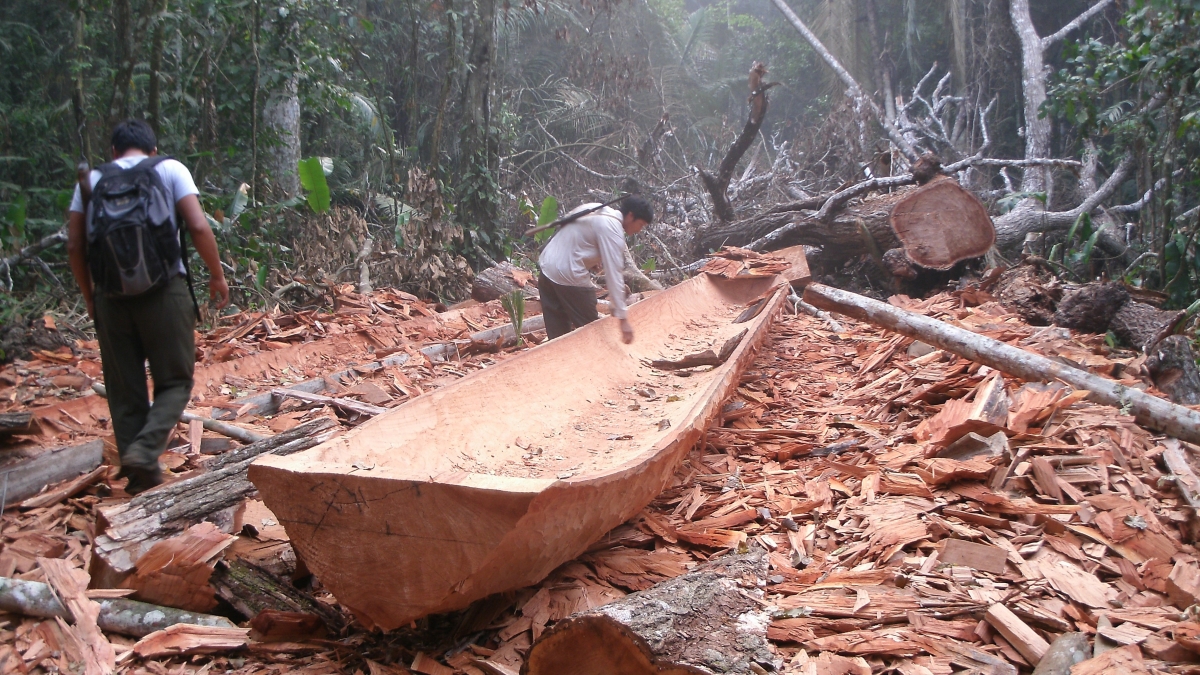Indigenous communities in Bolivian Amazon have less brain atrophy compared with populations in US, Europe

Tsimané man carving a boat in Bolivia. Photo courtesy Ben Trumble
New research shows two Indigenous communities who live in the tropical forests of lowland Bolivia have a lower loss of brain volume as they age compared with people living in the United States and Europe.
The study, “Brain volume, energy balance, and cardiovascular health in two nonindustrial South American populations,” was recently published in the Proceedings of the National Academy of Sciences and examined brain health in the Tsimané and Mosetén communities.
The team used CT scans to measure brain volume by age. They also measured the participants' body mass index, blood pressure and total cholesterol.
The scientists found that the Tsimané and Mosetén experienced less brain atrophy and improved cardiovascular health compared with industrialized populations in the U.S. and Europe. Rates of age-related brain atrophy, or brain shrinking, are correlated with risks of degenerative diseases like dementia and Alzheimer’s.
The research project was led by Professor Hillard Kaplan with Chapman University and Assistant Professor Andrei Irimia with University of Southern California, who processed the brain imaging.
Evolution makes us crave fats and sugars in today's society, but the scientists explained that because we have low physical activity, this abundance of calories that was once beneficial is now harmful.
“It has long been known that there is a mismatch between the environments in which humans lived for most of human evolution and urban industrialized life today,” said Ben Trumble, associate professor at the School of Human Evolution and Social Change. “Sedentary urban life is very different from highly active subsistence life; we are basically operating outside the manufacturer's recommended warranty. The Embarrassment of Riches model suggests that while getting enough food, and having some body fat is important for survival, too much of a good thing is actually bad for our brains.”
Trumble is also co-director of the Tsimane Health and Life History Project and has worked with the Tsimané for more than a decade. The populations have already been found to have some of the lowest rates of dementia, and the lowest rate of cardiovascular disease in the world.
The scientists also discovered differences between the Mosetén and the Tsimané. The two Indigenous communities have similar language, ancestral history and lifestyle. However, Mosetén have more exposure to modern technology, medicine, infrastructure and education.
The research shows too much of a good thing can be harmful and balance is key, says Trumble.
“If you are not getting enough calories, and you are very physically active, then you are not at optimal brain health,” he said. “If you are getting too many calories and not burning enough calories, then you also are not at optimal health.”
More Health and medicine

'Incredible milestone': ASU, city of Phoenix announce location for ASU Health headquarters
Citing the need for a “new way” of doing things, Arizona State University President Michael Crow said that the headquarters for…

Have a health question? This newsletter is for you
You sprain a knee while playing basketball. Your stomach hurts all the time. You keep getting bad headaches.What’s the first…

Spring clean your social life
Spring: a season of growth, warmer weather and perhaps a case of the sniffles. But as much as the flowers are budding and…

